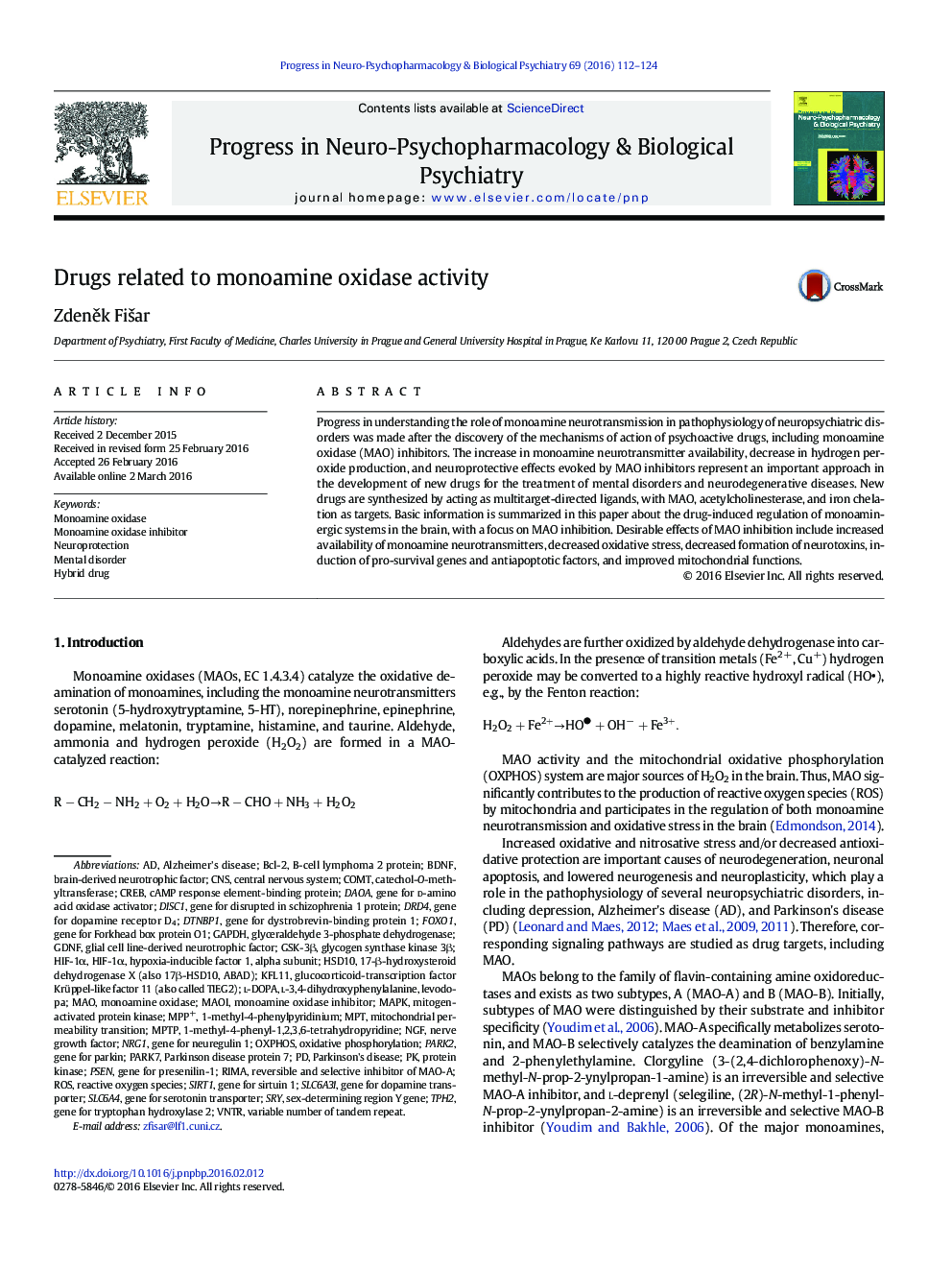| Article ID | Journal | Published Year | Pages | File Type |
|---|---|---|---|---|
| 2564691 | Progress in Neuro-Psychopharmacology and Biological Psychiatry | 2016 | 13 Pages |
•Role of monoamine oxidase (MAO) in neuropsychiatric disorders is introduced.•Mechanisms of regulation of monoamine oxidase activity by drugs are described.•Neuroprotective effects of MAO inhibitors are summarized.•Novel hybrid drugs are MAO and cholinesterase inhibitors and iron chelators.
Progress in understanding the role of monoamine neurotransmission in pathophysiology of neuropsychiatric disorders was made after the discovery of the mechanisms of action of psychoactive drugs, including monoamine oxidase (MAO) inhibitors. The increase in monoamine neurotransmitter availability, decrease in hydrogen peroxide production, and neuroprotective effects evoked by MAO inhibitors represent an important approach in the development of new drugs for the treatment of mental disorders and neurodegenerative diseases. New drugs are synthesized by acting as multitarget-directed ligands, with MAO, acetylcholinesterase, and iron chelation as targets. Basic information is summarized in this paper about the drug-induced regulation of monoaminergic systems in the brain, with a focus on MAO inhibition. Desirable effects of MAO inhibition include increased availability of monoamine neurotransmitters, decreased oxidative stress, decreased formation of neurotoxins, induction of pro-survival genes and antiapoptotic factors, and improved mitochondrial functions.
